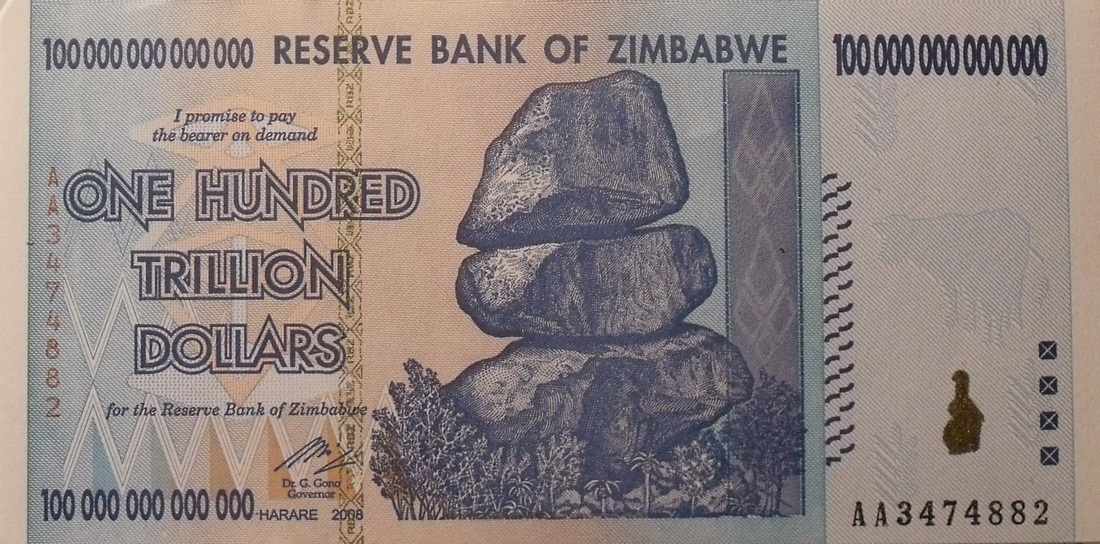A country takes in money by taxing the output of it's citizens. Zimbabwe’s economy is made up, in large part, of agricultural based products; farms. So a large part of the taxes came from the output of farmers.
Let’s back up for just a moment. The country of Zimbabwe has it’s roots in the British colonial system. This means that by the time Zimbabwe was becoming independent, a small percentage of white, British descendents, owned and farmed the vast majority of the farmland in the new country. I am not here to debate the right or wrong of that situation, but when Mugabe took power in 1998, he undertook the task of changing that.
In 2000, Mugabe allowed the black veterans of Zimbabwe’s war of independence to invade the farms of the white land owners, and take the land by force. Right or wrong, the white landowners had been able to work the land to great advantage and were providing large amounts of money to the Zimbabwe treasury. When they were driven from the country, farm outputs were cut in half when comparing 2000 to 2007. Mugabe’s brutal action did not go unnoticed by the Europe and the United States. They instituted tough sanctions. That meant that outside infusions of capital through investment and capital dried up.
With expenditures up, revenues down, and little means of borrowing money, Zimbabwe began to print money. Inflation, the decrease in the purchasing power of the monetary unit, was the result. Inflation comes about when there is more money (and credit) competing for the same or few amounts of goods and services. It’s like if you could use a scoop of dirt to buy a hamburger. Dirt is so plentiful, that the next person will offer two scoops for the same hamburger, so you end up having to offer three.
This is a gross oversimplification, but the principle is the same. To keep up with the increased demands of inflation, the Reserve bank of Zimbabwe printed more money, and then higher denominations to try to pay for their obligations, especially with other nations. Those nations who contracted to provide a good or service to a Zimbabwean for x amount of Z-dollars, found at time of payment, those dollars could buy much, much less. They would demand more Z-dollars in compensation. More Z-dollars were printed and the cycle repeated and intensified.


 RSS Feed
RSS Feed